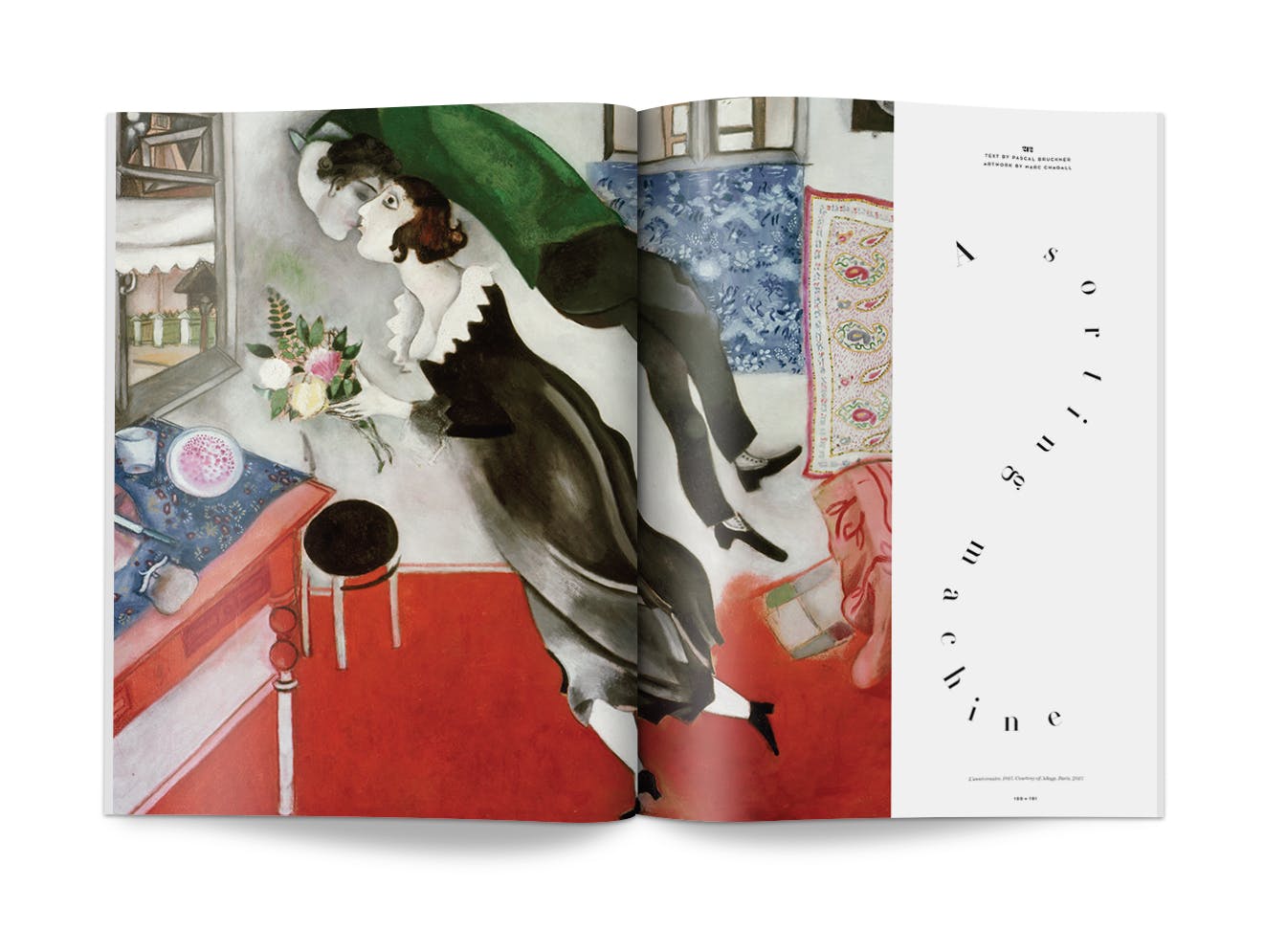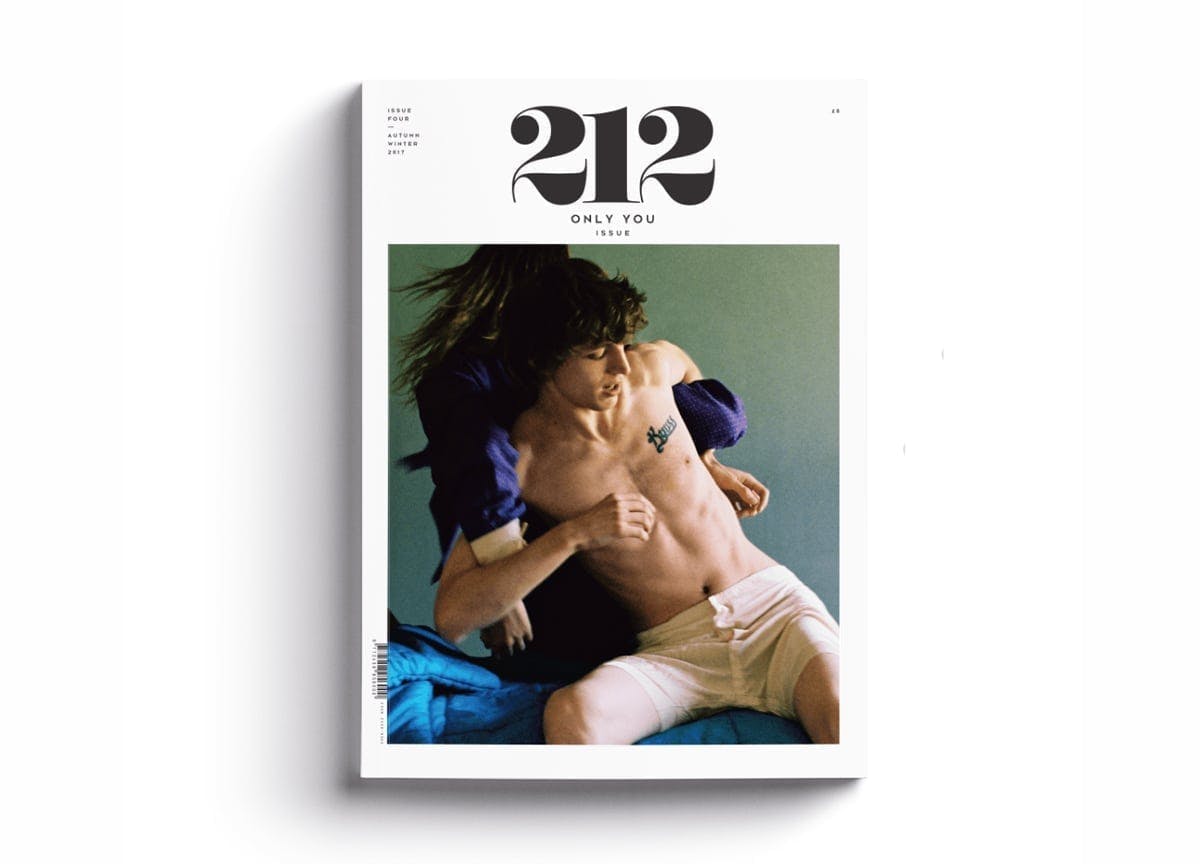Your guide to… 212 magazine, issue four
Large format publications are by nature impressive, but 212 magazine’s coverage of art and culture from Istanbul deserves special attention. Each issue curates a refreshing selection of contemporary art, paired alongside interviews with interesting creators and thoughtful comment pieces. Their latest issue boasts an interview with filmmaker David Lynch, and we got editor-in-chief Heval Okçuoğlu to give us her definitive guide…

1. The theme, based on a David Foster Wallace quote
Our approach to generating new themes takes advantage of a familiar social research method; basic arguments using deduction and induction. We sometimes choose a strong notion that pleases our ears to guide us through a new issue and we curate our content through this same looking-glass. Other times, midway upon the journey of creating a new issue, we find ourselves within a forest dark, for the straightforward pathway is lost!
Often, the entirety of the content we choose to feature tells us something about us, something more symbolic and subconscious, and there is no other way to express this without using quotes. You see, the best thing about making a magazine is that you get to arrange other peoples’ flowers, which is also how Montaigne defined quoting others. Each of the stories in this new issue portrays a different kind of human struggle, whether personal, psychological or social, and at the centre of each there is always a constant: you. There was no other way to express how this curation emerged without quoting the divine observations of Mr. Wallace.

2. How people develop their personality over time
Alicia Moneva’s work conveys a hypnotic visual representation of the many yous one maintains in oneself, a visual ode to the one you you have to live with. We thought it would be a good starting point for the narrative and the multi-layered chronology of the issue. Moneva is interested in the ontogenesis of the personality: a personal and general history of how each and every one of us develops our personality over time. I find her aerial gaze both comforting, as ordinary snippets of human experience, and at the same time almost disturbing, because it is only limited to being only human.

3. A reverse perspective on identity
The aim of this feature was to present a reverse perspective on identity as a human experience and its implications. French journalist Yann Perreau’s book ‘Incognito, histories d’une contre-culture’ published by Editions Grasset this year, from which he distilled this feature, is an excellent guide to understanding the rise of the need of anonymity and what it achieves once the lurid connection of the creator/product bond breaks; in essence, why we as humans may crave or revel in anonymity in our 21st century lifestyles.
4. David Lynch speaks on meditation
The interview took place just when he was gearing up for the premiere of the new Twin Peaks and the travel commitments resulting from that. It was very kind of him to take us up on the offer to be interviewed on an issue focusing on this very theme. True to form, he did not want to speak about the series or his work but strictly about meditation, curtly and to the point. It grows on you.

5. Short story on placenessness
One of my favourite features in this issue is the heartfelt prose that Igbo and Tamil author Akwaeke Emezi wrote exclusively for us called Nowhere. Her short story, ‘Who Is Like God’, won the 2017 Commonwealth Short Story Prize for Africa, and she recently made a cameo in the music video for Jay-Z’s title track ‘4:44’. Here, she delivers a fantastic example of stream-of-consciousness about disconnection and placelessness from the shores of the Black Sea. I found it to be a great metaphor.




—
Sign up to Stack and we’ll deliver our favourite independent publishing to your door







